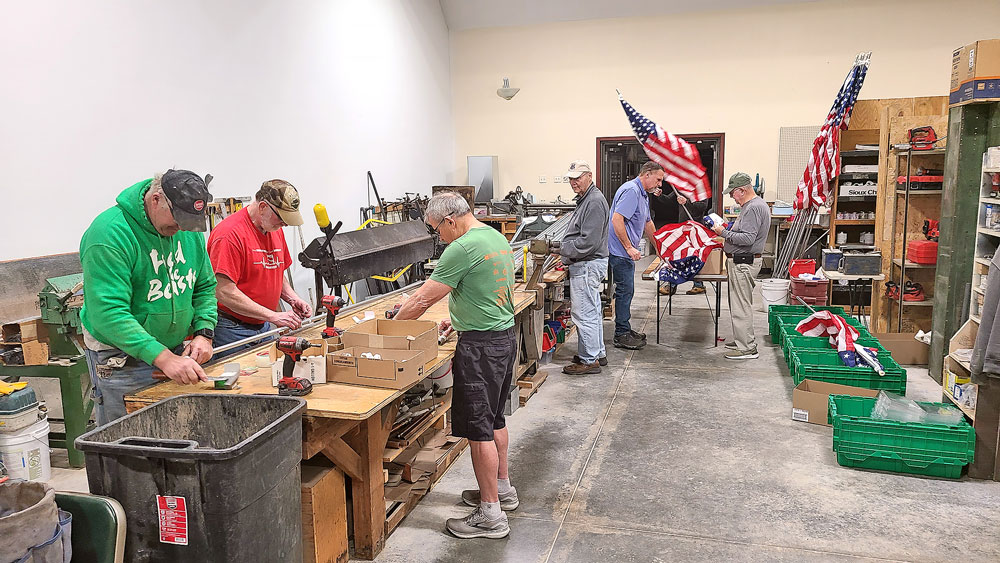Judge rules against jury race challenge; trial to begin
By Bob Steenson, bsteenson@charlescitypress.com
The judge in a Floyd County murder case has turned down a challenge to the racial makeup of the potential jury pool, and the trial should begin Tuesday as scheduled.

Press photo by Bob Steenson
Antoine Williams of Charles City is charged with first-degree murder for the June 30 shooting death in Charles City of Nathaniel Fleming.
Last week, Williams’ attorneys, Nellie O’Mara and Steven Kloberdanz of Mason City, filed a motion challenging that the pool of potential jurors in Floyd County underrepresents African-Americans, and therefore Williams, who is African-American, would be denied the opportunity to be tried by “a fair representation of the community under the Sixth Amendment.”
The state prosecution, represented by Iowa Assistant Attorney General Coleman McAllister, argued that the defense had not proved that African-Americans were underrepresented in the jury pool, and had not proved that African-Americans were systematically excluded from the jury pool by the means used to select potential jurors.
On Friday, District Court Judge Dustin Davenport ruled against the defense motion, agreeing with the state on both points.
Davenport noted that in order to make a challenge to a jury panel’s representation, three elements must be satisfied:
- The defendant must be a member of a distinctive group.
- Representation of the group in jury pools is not fair and reasonable to the number of such persons in the community.
- The selection for the jury pool systematically results in the exclusion of a distinctive group from the pool.
Davenport wrote that African-Americans are a distinctive group, so the first element is met, but he said the defense failed to prove the second and third elements.
“The court notes that given the small percentages of African-Americans, the presence or absence of one or two jury members can have a significant impact on the comparison between the jury pool and the general population.
“Given the small numbers involved, it is difficult to apply a rigid statistical analysis to the matter. Generally the court concludes that having two African-Americans in the potential pool when there should be two to three African-Americans in the potential pool is not disproportionate,” Davenport’s opinion said.
In the Williams case the two jury pools called for the trial included two people who self-identified as African-American, although one of those was excused from jury duty because that person was a student attending college away from home.
Davenport wrote that the third element was also not met, that the defense had not proven that the method for selecting potential jurors systematically resulted in disproportionately fewer African-Americans being selected.
However, he also said the state should review its method of selecting jury pools, which now relies on voter registration lists and lists of persons with driver’s licenses.
“In reviewing historical numbers, the court believes that the state court system can do more and the court suspects that a more thorough statistical analysis would show that African-Americans are less likely to have motor vehicle registration or are less likely to be registered to vote,” Davenport wrote.
“However,” he continued, “that showing has not been made in this case.
“The court believes that additional lists could be used to increase the potential numbers of distinct minority groups. However, … this does not mean that the current method
systematically excludes African-American jurors.”
Davenport denied the defense motion and ordered the trial to proceed with jury selection beginning Tuesday (today) at 9 a.m. in the district courtroom at the Floyd County Courthouse.
The racial makeup of juries has been increasingly raised in trials across Iowa, including at least two in this area.
In July, Judge Davenport denied a similar motion from O’Mara and Kloberdanz in the double murder trial of Peter Veal, of Lake Mills.
In 2015, the murder trial of Tyrone Washington Jr. of Northwood was delayed when District Court Judge Colleen Weiland dismissed the first jury pool because it contained no African-Americans. A second jury pool contained four African-Americans among a total group of 224. One African-American was selected for the jury.
Both trials were moved to Webster County on changes of venue. In both cases the juries found the defendants guilty.
This summer, the state Supreme Court reversed its own ruling of 25 years earlier in saying that judges should consider multiple tests to determine whether the racial composition of a jury violates a defendant’s constitutional rights.
A previously used test had made it almost impossible to challenge the racial makeup of a jury for groups that make up only a small percentage of the overall population.








Social Share